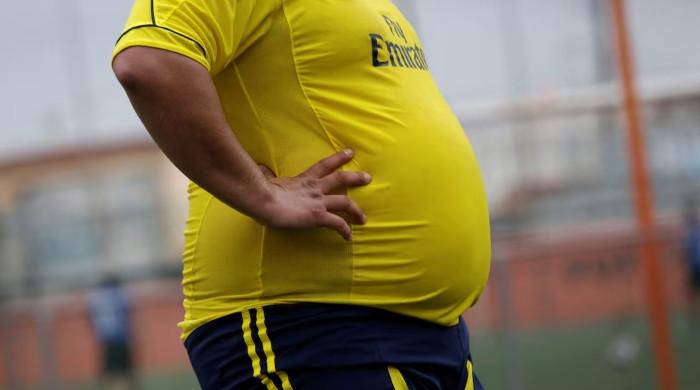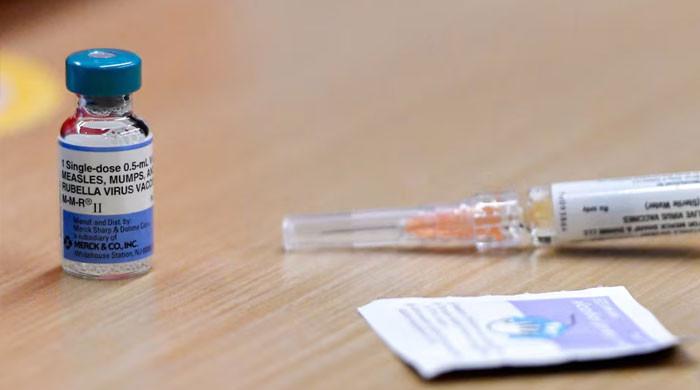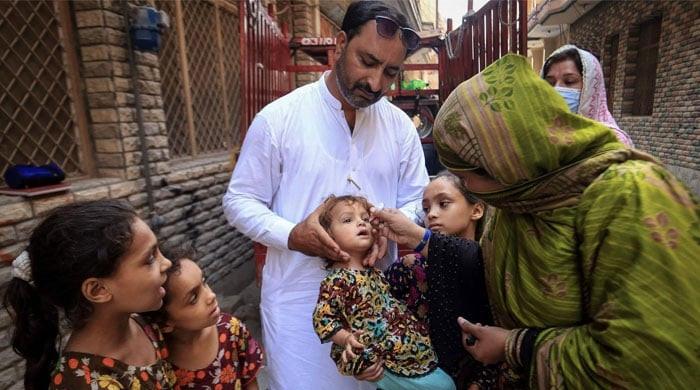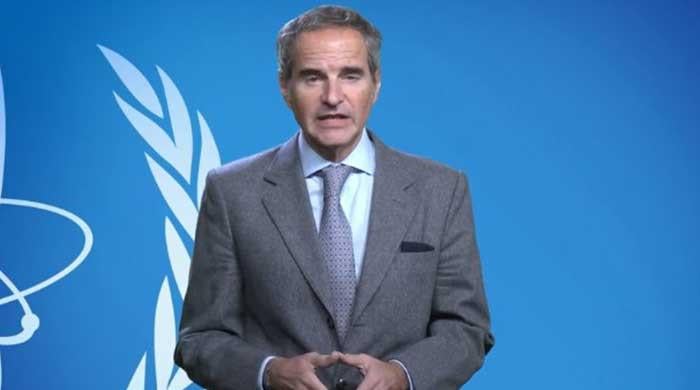No evidence on Indian coronavirus variant reaching Pakistan: health officials
'Just a matter of time' before Indian COVID variants reaches Pakistan, says Health Director General Dr Rana Muhammad Safdar
May 17, 2021
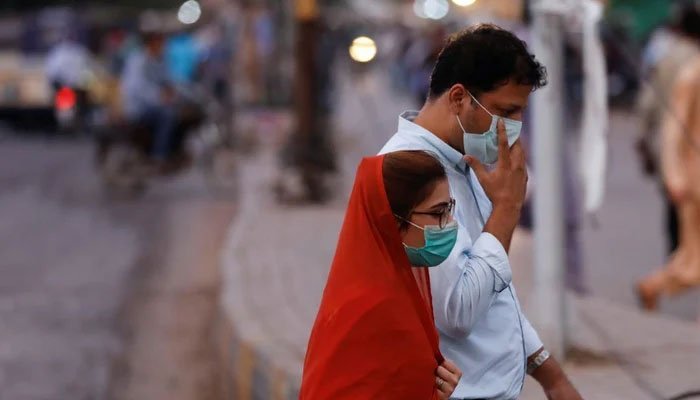
- No proof triple mutant from India reached Pakistan, say Pakistani health officials.
- The Indian coronavirus variant has spread to around 50 countries in the world and now declared a ‘variant of concern’ and a global health risk by the World Health Organization.
- SAPM on Health Dr Faisal Sultan says there is no room for complacency currently as the positivity ratio is still very high in some cities.
KARACHI: There is no evidence to suggest that the triple mutant coronavirus variant from India or the B.1.617.2 variant has managed to reach Pakistan, say the country's top health officials.
They said preventive measures such as reduced inbound travel, testing on arrival at airports and quarantine for those who test positive are in place.
“We have reduced inbound air traffic by 80% and we are asking all passengers to get tested before boarding while they are also being tested on arrival. We are keeping those testing positive in quarantine to ensure the variant dubbed as triple mutant or Indian variant does not manage to get into Pakistan,” Special Assistant to Prime Minister (SAPM) on Health Dr Faisal Sultan told The News.
Read more: Pakistan down to 61% of COVID-19 peak, cases falling: report
Several health experts are urging the government to ban all direct or indirect flights from the United Kingdom as well as Gulf states to prevent the entry of B.1.617.2 or Indian variant into Pakistan, which has spread to around 50 countries in the world and now declared a ‘variant of concern’ and a global health risk by the World Health Organization (WHO).
“We don't have documentation. Yet, to exclude anything in a country of 220 million is impossible,” Dr Sultan said when questioned on how sure he is if the Indian variant has not entered Pakistan.
Dr Sultan said Pakistan had approached Thailand’s health authorities through the International Health Regulations (IHR) mechanism to seek details of a family, who they had claimed contracted the Indian variant from Pakistan but added that so far the Thai authorities had not provided any details to Pakistan.
Health Director General Dr Rana Muhammad Safdar also said the Indian variant had not managed to reach Pakistan yet, but warned that it was ‘just a matter of time’ before it spreads to most of the countries in the world, including Pakistan.
Read more: Sindh has not banned Sinopharm vaccine, clarifies Murtaza Wahab
He said the risk is "enormous" as the Indian variant has already spread to almost 50 countries, including our region. "The pace at which it is spreading is alarming. For all countries, it's just a matter of time," Dr Safdar said.
No room for complacency: Dr Faisal Sultan
Commenting on easing restrictions in the country from Monday, he reiterated that there is no room for complacency currently as the positivity ratio is still very high in some cities.
Dr Sultan said that educational institutions had still not been opened to reduce transmission in the country.
Responding to a query, Dr. Safdar, who is an expert of emerging infectious diseases, further said:
Cannot let our guard down: Dr Rana Safdar
We cannot let our guard down, Dr Safdar said, adding that all potential options of slowing down the transmission through strict enforcement of NPIs (non-pharmaceutical interventions) and creating strong immunity wall by quickly vaccinating all vulnerable populations gives us the best chance of life normalisation and a safer exit from the coronavirus pandemic.
Read the latest updates on coronavirus in Pakistan
He, however, claimed that a new study out of Oxford confirms current coronavirus vaccines work well against the B.1.617.2 variant.
“AstraZeneca and Pfizer doses still create enough antibodies to neutralize B.1.617.2 and significantly diminish the risk of hospitalization and death. Researchers found B.1.617.2 is not as vaccine resistant as B.1.351 (South Africa) and reacts like B.1.1.7 and P.1. (Brazil) variants,” he said.





